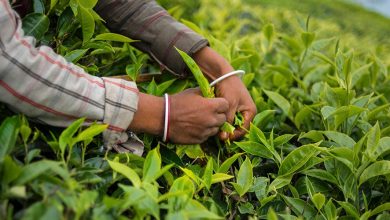SBL wages full war on teens alcohol drinking

UNDERAGE drinking is associated with various negative consequences for children and can affect and endanger the lives of those around them. When teenagers engage in alcoholic drinking are more likely to engage in risky behaviours, including using other drugs such as marijuana and cocaine.
Children who use alcohol have higher rates of academic problems and poor school performance compared with non drinkers.
Even if it is illegal in Tanzania to sell or consume alcohol for persons under 18, those who don’t drink will at least be exposed to friends, parents, classmates or peers who do school.
Various findings have found that excessive consumption of alcohol has many side effects, particularly for the underage. The so-called alcohol use disorders range from deterioration of one’s personal, physical and mental health status, and economic drain to social disapproval.
The effects are even more pronounced on the underage. Yet there don’t seem to be serious concerted efforts to address the problem.
A study conducted by the Ministry of Health and Social Welfare in 2008 among secondary school students in the Dar es Salaam Region found that 5 per cent used alcohol, 10.8 per cent had taken a drink before age 14 and 26.2 per cent had a parent who abused alcohol.
Alcohol use during early childhood and adolescence can have long-term detrimental health, social, economic and developmental effects on youth and society.
Research shows that youth who start drinking alcohol before the age of 15 are six times more likely to develop alcohol dependency problems than those who start drinking after the age of 21.
Adolescents who drink are also more likely to experience social problems, abuse drugs, perpetrate or experience violence, perform poorly in school and engage in reckless behaviour.
Alcohol use may also associate with risky sexual behaviours and an increased risk for sexually transmitted diseases. It can also lead to changes in brain development and disrupt normal growth and development.
Serengeti Breweries Limited (SBL) has stood to be counted in addressing the escalating em of underage alcohol consumption. For a year now, SBL has taken the fight right to schools where the brewer uses theatre performance (drama) to educate students between the age of 13 and 17 years about the side effects of alcohol consumption urging them to refrain from the practice.
Through a programme known as ‘SMASHED’, SBL has now reached dozens of secondary schools in Dar es Salaam and Tanga regions educating over 15,000 students who may be at risk of exposure to early alcohol consumption. The programme aims to build self-esteem and resilience and provide young people with strategies to overcome temptations to hit the bottle at an early age.
“Young people have a right to an alcohol education that doesn’t shield them from reality or scare them with shock tactics. SMASHED is a powerful and realistic story of young people and alcohol.
Learners stop and ask, ‘What if that was me?” said SBL Corporate Relations Director Mr John Wanyancha, at a school in Tanga in which a SMASHED concert was staged last week.
According to Mr Wanyancha, the programme is a global educational theatre Programme dedicated to reducing underage alcohol consumption across the world.
Created for UK schools by Collingwood Learning, it now supports a growing global network of creative partners to deliver the Programme around the world.
The programme is active in 25 countries across six continents and has reached over 700,000 young people since its inception.
SMASHED has a strong international reputation based upon measurable improvements in student knowledge and awareness of the dangers of underage drinking.
The programme was introduced in Tanzania last year by creating awareness among students in seven schools in Dar es Salaam reaching over 9,400 students. The schools in Dar es Salaam include Fahari, Gogoni, Urafiki, Kwembe, Makulumula, Mabibo and Malamba Mawili secondary schools.
Tanga Region was up next and beginning this year, SBL has rolled out the program in five schools impacting over 7,500 students at Mnyanjani, Nguvumali, Kihere, Toledo and Maceschu secondary schools.
“This programme is part of a broader campaign by our company to promote responsible or moderate consumption, the director said citing Don’t Drink and Drive and DrinkiQ as other programs the company is using to reach motorists, boda boda riders and the general public. Moderate alcohol use for healthy adults generally means consuming up to one drink a day for women and up to two drinks a day for men.
Studies have found that moderate alcohol consumption may provide some health benefits such as reducing the risk of developing and dying of heart disease; reducing the risk of ischemic stroke (when the arteries to your brain become narrowed or blocked, causing severely reduced blood flow) and could also reduce the risk of diabetes Learners, teachers and other stakeholders in the education sector who have experienced the program find SMASHED a timely intervention in addressing the growing concern of underage drinking in the country.
“Alcohol consumption and use of drugs is a major problem among some secondary school students in Tanga. It’s been noted to be the main cause of truancy behaviour, absenteeism, indiscipline and poor performances by the concerned students, commented Mr Maurus Ndunguru, the Tanga City Council Academic Officer.
Mr Ndunguru, who attended SMASHED theatre performances in all five schools in the region, also appealed to SBL to extend its reach to other schools within the city praising the program as “a real-life experience and an eyeopener to students in making informed choices of what they want in life knowing that early alcohol consumption could as well destroy their life dreams and aspirations.”
Also impressed by the programme was the Tanga City Council Social Welfare and Development Officer Naetwe Kilianga who during the SMASHED performance at Taledo Secondary School appealed to the students to apply the knowledge obtained “to say no to alcohol and instead focus on education.”
While acknowledging that students can faced with everyday stresses, negative feelings and issues, Kilianga advised them that there are many more positive ways to unwind and move on in life than opting to use alcohol.






Your point of view caught my eye and was very interesting. Thanks. I have a question for you.